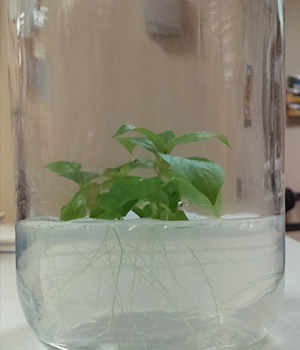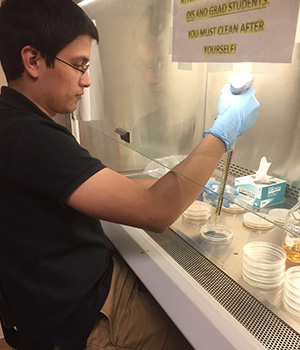The Esiobu microbial biotech laboratory seeks to power discovery, create solutions and produce competent workforce for global economies. From beach sands, wetlands, plant roots, human guts / skin to mosquito saliva, my research interests are broad:
Human Microbiome research employs metagenomics, computational biology, and bio-informatics to: study diverse oral microbiome populations for diagnostics and probiotic development; define gut microbiome structure and interactions and how community shifts influence health and disease (obesity, IBD); improve and standardize skin microbiome sampling for possible use in forensics.
Plant Microbiome exploration seeks to understand the role of plant associated microbiomes during invasion (e.g. Brazilian peppertree rhizosphere), devising methods for ecological control and restoration. We are also working on using formulated microbial inoculants to improve Florida citrus plants’ resistance to citrus greening disease (Ca. Liberibacter spp).
Environmental and Public Health group investigates beach quality using indicator bacteria, and evaluates whole meta-genome sequencing for risk assessment. We employ new techniques to study microbiome structures for baseline, pollution, antibiotic resistance, and bio-remediation assessment, as well as predicting the impacts of sea level rise.
Synthetic Biology and Rapid Detection research focuses on creating simple, handheld pathogen surveillance devices. We are developing an organism model for simulating fastidious and deadly microbes, from viruses to bacteria.
Developing Culture Methods team uses the vast research into bacterial physiology and ecology to develop and test various systems to improve the cultivability of the > 90% of currently unculturable bacteria.

